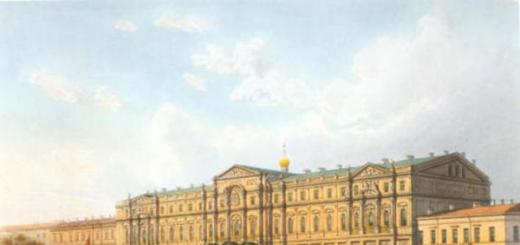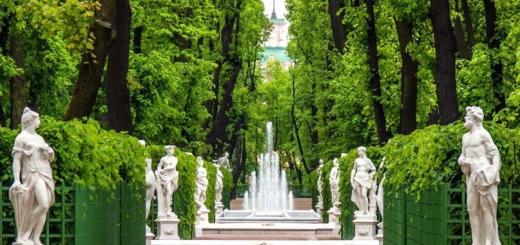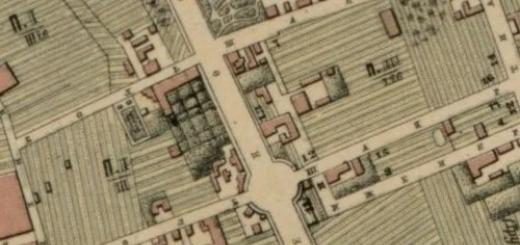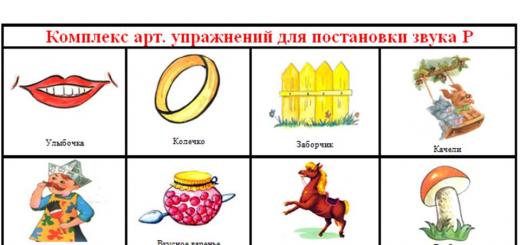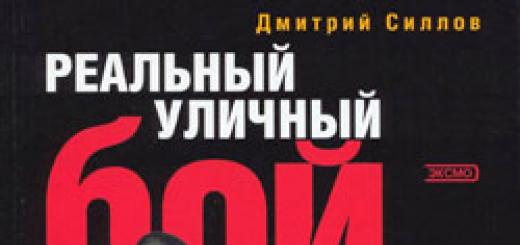10.03.1917 - 24.08.1941
Hero Soviet Union
P Ankratov Alexander Konstantinovich - political instructor of the company of the 125th tank regiment of the 28th tank division of the North-Western Front, junior political instructor; the first of the Soviet soldiers who accomplished the feat, which later became known as the "feat of Alexander Matrosov".
Born March 10, 1917 in the village of Abakshino, now the Vologda district of the Vologda region in peasant family. Russian. Member of the CPSU (b) since 1940. Since 1931 he lived in the regional center of the Vologda region, the city of Vologda, where he graduated from the 7th grade and the FZU school. He worked as a turner, foreman of the turning and mechanical shop at the Severny Kommunar plant. He was the chairman of the shop trade union organization, the head of the OSOAVIAKhIM organization.
In the Red Army since 1938. In 1940 he graduated from the Smolensk military-political school. Member of the Great Patriotic War since June 1941.
The political instructor of the company of the 125th Tank Regiment (28th Tank Division, Northwestern Front), junior political instructor Alexander Pankratov during the assault on August 24, 1941 of the St. the fire of an enemy machine gun, enabling the fighters to break into the enemy’s location and destroy his observation post, which corrected the fire of the batteries.
The brave political instructor was the first of the Soviet soldiers who covered the enemy machine gun with his body and ensured the success of his unit. This is the first documented act of such self-sacrifice. According to various sources, from two hundred to four hundred people repeated this feat during the Great Patriotic War. Of these, one hundred and thirty-four were awarded the title of Hero of the Soviet Union ...
At order of the Presidium of the Supreme Soviet of the USSR of March 16, 1942 for the exemplary performance of combat missions of the command on the front of the fight against fascist german invaders and the courage and heroism shown at the same time to the junior political instructor Pankratov Alexander Konstantinovich posthumously awarded the title Hero of the Soviet Union.
He was awarded the Order of Lenin (03/16/1942, posthumously).
The obelisk to the Hero and the memorial plaque were installed in Veliky Novgorod. A school in Vologda, a ship, streets in Vologda and Veliky Novgorod bear the name of Alexander Pankratov.
From the award list of A.K. Pankratova:
From the beginning of hostilities against German fascism, Comrade Pankratov showed himself to be an exceptionally valiant, courageous commander and educator.
He was a participant in every reconnaissance and obtained valuable information about the enemy.
During the assault on the St. Cyril Monastery, thanks to good organization and speed, the company was imperceptibly transferred across the river to the monastery, which was immediately attacked.
During the assault on the monastery, the enemy belatedly opened heavy fire. The left-flank machine gun of the enemy did not allow a group of brave men led by Pankratov to enter the location of the monastery. Then Pankratov broke forward, rushed to the machine gun and closed the embrasure with his body, destroying one of the machine gunners, allowing the company to break through to the monastery and capture the enemy’s stronghold with the least losses.
Pankratov died in this battle with the death of a hero. Having used up all the cartridges and grenades, he covered the machine gun with his chest, depriving the enemy of the opportunity to conduct aimed fire ...
|
Biography provided by Ufarkin Nikolai Vasilyevich (1955-2011) |
More than 400 people committed a feat in the Great Patriotic War, which is called a feat Alexandra Matrosova. These are people of different nationalities who accomplished this feat in different periods of the Great Patriotic War. The uniqueness of this selfless feat is that only representatives of our country were capable of such self-sacrifice for the sake of the lives of their comrades in arms. And mostly they were young people from 20 to 30 years old. When life is at its peak. There were also such heroes who, two people at a time, lay down on the muzzle of an enemy machine gun, spewing deadly fire from bunkers. And even among them were women. And 8 people survived after that, despite the terrible wounds.
Not everyone received the title of Hero of the Soviet Union. And the memory of these people began to be forgotten. And this cannot be allowed! The first person to accomplish this feat was Alexander Konstantinovich Pankratov. It was at the very beginning of the war - on August 25 during the defense of Veliky Novgorod. Novgorodians sacredly honor this event and the hero himself. At the entrance to the city, at the place where the battle with the Nazis took place, in which Alexander Pankratov proved to be an immortal hero, there is a memorial stele in memory of this feat. At the time of the feat, Alexander Pankratov was 24 years old. Unfortunately, about this feat and about the hero himself, the bulk of the population of our country, and especially the representatives of the younger generation, know very little.
 In Veliky Novgorod, under the Council of Veterans of the city, on November 10 of this year, a coordinating council was created, which included both veterans of Veliky Novgorod and youth representatives. Representatives of our Moscow tour club also entered the coordinating council "SV-Search". There is a proposal to create the same council in Moscow and in Vologda, the homeland of the hero. Our task is not only to perpetuate this feat, but also to create the necessary conditions for the accessibility of information among young people about this feat. And also, in carrying out the necessary and significant events related to this event.
In Veliky Novgorod, under the Council of Veterans of the city, on November 10 of this year, a coordinating council was created, which included both veterans of Veliky Novgorod and youth representatives. Representatives of our Moscow tour club also entered the coordinating council "SV-Search". There is a proposal to create the same council in Moscow and in Vologda, the homeland of the hero. Our task is not only to perpetuate this feat, but also to create the necessary conditions for the accessibility of information among young people about this feat. And also, in carrying out the necessary and significant events related to this event.
« Let's remember this now! Let us bring the monuments, and the very memory of these people, into proper condition. Let's get our youth involved in this work as well. Not by shouting calls at demonstrations, but by living deeds! Let politicians share power among themselves. All the same, everything will be as it is already predetermined. But after all, any politician can now be thrown into the eye - do we need the memory of our great heroes? And hardly anyone will object to us. So let's do something together! After all, if a small fraction of the funds that go to all sorts of election campaigns and campaigning were to be spent on the restoration of monuments to war heroes and search work, then we could achieve a lot in matters of holy memory!«, — Sergei Zvyagin, head of the historical research tourist club "SV-Search".
History of the Feat
 Alexander Pankratov was born on March 10, 1917 in the village of Abakshino - now the territory of the Oktyabrsky village council of the Vologda region. The family brought up four children. They lived in poverty. Having lost his father at the age of five, the boy went through a harsh school of life. Learned to read early, graduated with honors from Rakhulevskaya primary school, and then the Agafonov School of Working Youth (now - within the boundaries of the village of Molochnoye).
Alexander Pankratov was born on March 10, 1917 in the village of Abakshino - now the territory of the Oktyabrsky village council of the Vologda region. The family brought up four children. They lived in poverty. Having lost his father at the age of five, the boy went through a harsh school of life. Learned to read early, graduated with honors from Rakhulevskaya primary school, and then the Agafonov School of Working Youth (now - within the boundaries of the village of Molochnoye).
In 1931, Alexander went to Vologda and entered the 7th grade, while studying at the courses of electricians. At the end of 1934, he graduated from the Federal Educational Institution of the Severny Kommunar plant with a degree in metal turner. Since February 1935, he has been working as a turner in the fire-assembly shop of the Vologda Locomotive Repair Plant, actively participating in Stakhanov movement, attends circles of OSOAVIAKhIM.
In October 1938, Alexander Pankratov was drafted into the Red Army. The service begins in the 32nd training battalion of the 21st tank brigade, which was stationed in Smolensk. In his company, he was elected secretary of the Komsomol organization, in the evenings he attended classes in the party school. His desire for study and political work were noticed. In August 1939, the young man was sent to Gomel to take courses for junior political officers of the Belarusian Military District. As one of the most capable cadets, in January 1940 he was transferred to the Smolensk Military-Political School. In April 1940, he was accepted into the ranks of the CPSU (b). January 18, 1941 A.K. Pankratov graduated from college and received military rank- junior political officer.
Alexander Pankratov met the Great Patriotic War in the Baltics. In the battles for the defense of Siauliai from June 23 to 27, 1941, as the award list says, "the junior political instructor of the company of the first battalion of the 125th tank regiment proved to be an exceptionally conscientious, courageous commander-educator." Meanwhile, the enemy was approaching Novgorod. The most combat-ready military unit opposing the Germans in the battles for the city, in August 1941 was the 28th Panzer Division of Colonel I. D. Chernyakhovsky, later a famous Soviet military leader.
August 15, 1941 Only on August 15, 1941, the soldiers of the 28th Panzer Division repulsed 13 German attacks. However, on August 19, the enemy managed to break into the northeastern outskirts of Novgorod. Intelligence found that the Germans created an observation post within the walls of the Kirillov Monastery, from where they corrected their artillery fire. On the night of August 24-25, the 125th tank regiment was tasked with secretly crossing the Maly Volkhovets River and seizing the monastery with a sudden blow.
The execution of this task was entrusted to the company of Lieutenant Platonov, in which Alexander Pankratov was the junior political instructor. However, the expectation of surprise did not justify itself, the Nazis met our fighters with heavy machine-gun fire. The company commander was killed, the soldiers lay down. Assessing the situation, the junior political instructor Pankratov crawled to the enemy machine gun and threw grenades at it.
 The machine-gun crew of the enemy ceased fire for some time, but soon resumed it with renewed vigor. The advancement of the soldiers of the company of the junior political officer Alexander again stopped, many dead and wounded appeared on the battlefield. Then our countryman with the exclamation of "Forward!" made a sharp jerk towards the enemy embrasure and covered the barrel of the machine gun spewing flames with his chest. The company immediately went on the attack and broke into the monastery.
The machine-gun crew of the enemy ceased fire for some time, but soon resumed it with renewed vigor. The advancement of the soldiers of the company of the junior political officer Alexander again stopped, many dead and wounded appeared on the battlefield. Then our countryman with the exclamation of "Forward!" made a sharp jerk towards the enemy embrasure and covered the barrel of the machine gun spewing flames with his chest. The company immediately went on the attack and broke into the monastery.
 The government highly appreciated the feat of a native of the Vologda land. On March 16, 1942, he was posthumously awarded the title of Hero of the Soviet Union. On November 19, 1965, near Novgorod, on the western bank of the Maly Volkhovets River, an obelisk was erected in honor of the feat of Alexander Pankratov. In Vologda, on one of the houses on Pankratova Street, a memorial plaque with a bas-relief of the hero was installed. In front of the building of the former FZU on Chernyshevsky Street, where the museum of vocational education is now located, there is a stele with the inscription:
The government highly appreciated the feat of a native of the Vologda land. On March 16, 1942, he was posthumously awarded the title of Hero of the Soviet Union. On November 19, 1965, near Novgorod, on the western bank of the Maly Volkhovets River, an obelisk was erected in honor of the feat of Alexander Pankratov. In Vologda, on one of the houses on Pankratova Street, a memorial plaque with a bas-relief of the hero was installed. In front of the building of the former FZU on Chernyshevsky Street, where the museum of vocational education is now located, there is a stele with the inscription:
"Hero of the Soviet Union Alexander Konstantinovich Pankratov studied here." The immortal feat of our fellow countryman cannot be forgotten, he forever went down in the history of the Great Patriotic War.
Pankratov Alexander Konstantinovich, junior political instructor, was born in 1917 in the village of Abakshino, Vologda region. Member of the CPSU, died in August 1941.
The title of Hero of the Soviet Union was awarded by the Decree of the Presidium of the Supreme Soviet of the USSR of March 16, 1942.
The ship is named after Pankratov. A monument was erected to the hero in Novgorod. There are Pankratov streets in Vologda and Novgorod. His name is technical school No. 1 in Vologda. Pioneers of many schools and countries call themselves Pankratovites. The production teams of some enterprises deduct wages to his account, which is transferred to the Peace Fund.
The "History of the Communist Party of the Soviet Union" says that in the Great Patriotic War the first great feat of self-sacrifice in the name of the socialist Motherland was accomplished by a company political worker. In the battles near Novgorod, political instructor A.K. Pankratov, a former worker from Vologda, at a critical moment, dragging the fighters with him, with the exclamation of "Forward!" rushed to the enemy machine gun and covered it with his chest ...
Alexander Pankratov, a turner at the Vologda Locomotive Car Repair Plant, a Komsomol member, was drafted into the Red Army in October 1938 and sent to the 21st Tank Brigade.
Upon arrival in Smolensk, he was enrolled in the 32nd training tank battalion of the same brigade, where he studied under the program of the junior commander of tank troops.
In his autobiography, A.K. Pankratov pointed out that in the training company he was elected secretary of the Komsomol organization, editor of the company wall newspaper, in the evenings he attended classes at the party school. In August 1939, he was sent to Gomel to take courses for junior political officers of the Belarusian Special Military District, and in January 1940, among the most successful, he was transferred to the Smolensk Military-Political School to continue his studies.
IN personal file A.K. Pankratov, documents are kept that testify to his enormous work to raise the ideological and theoretical level, expand the general outlook. The list of the studied works of the classics of Marxism-Leninism includes the works of K. Marx and F. Engels, the most important works of V.I. Lenin. The list of military-historical works read speaks of the pronounced military-patriotic orientation of Pankratov's interests: here are books about Alexander Nevsky and Dmitry Donskoy, Minin and Pozharsky, Suvorov and Kutuzov, about the heroic struggle of the Russian people against foreign invaders.
In April 1940, in the life of A.K. Pankratov happened significant event: He was accepted as a member of the Communist Party.
The qualities of the communist Pankratov are visible from the party profile approved on December 6, 1940: “A growing communist. Stubbornly masters the foundations of Marxism-Leninism. Politically developed well, systematically raises its ideological and political level. Always up to date with international events. Actively participates in the life of the party organization. Helps the command in strengthening Soviet military discipline and unity of command.
In the final attestation, noting the high combat and physical training and excellent knowledge of military equipment, the cadet company commander wrote about Pankratov: “Disciplined. Demanding of himself and subordinates. I am confident in my actions. Initiative and determined. The character is firm and stable. Sociable, enjoys authority among comrades. He is devoted to the cause of the Communist Party and the socialist Motherland.”
A.K. Pankratov graduated from the Smolensk Military-Political School and on January 18, 1941 he was awarded the military rank of junior political instructor.
At that time, Alexander wrote to his mother in Vologda:
“How quickly time flies. It seems that just recently I stood behind the machine, and today I have already graduated from a military school. The gray-haired honored general, shaking hands, gave an order: “Take care of the Motherland, we have only one!”
Dear Mom! I'm glad I found my place in life."
On February 20, 1941, junior political instructor Pankratov, who arrived at the disposal of the military council of the Baltic Military District, was appointed political instructor of the company in the 10th light tank brigade, and on April 24, 1941 - to the same position in the 125th tank regiment 202nd motorized division. This regiment was stationed in the city of Radviliskis (east of Siauliai) and by the beginning of hostilities was in the process of formation: there were no combat vehicles yet.
From the first day of the Great Patriotic War, the regiment fought heroically on the outskirts of Siauliai and north of Krustpils on the Western Dvina River, participated in the counterattack that was inflicted by the 12th mechanized corps against the Nazi troops in the area of the city of Madona.
Hardly experiencing the failure of the first days of the war, Alexander wrote to his mother from the front: “Do not grieve, mother! We will defeat the Nazis anyway, and if we have to die, I will die a hero.”
These were not just nice words. Behind them were the real military exploits of the young political worker. A document has been preserved in the archives in which the commander and commissar of the regiment talk about him: “From the beginning of hostilities against the German fascists, Comrade Pankratov showed himself to be an exceptionally valiant, courageous commander-educator. He was a participant in every reconnaissance and delivered valuable information about the enemy.
Starting from the second half of July, the 12th mechanized corps operated in the Novgorod direction, preparing for defensive battles. On August 8, the Germans captured Staraya Russa. A real threat was created of the landing of Nazi troops on the northern and eastern shores of Lake Ilmen and the enemy's advance around Novgorod to Leningrad.
In this regard, starting from August 6, the 125th Tank Regiment prepared defensive lines in the area of the mouth of the Meta River and on August 10 took up defense in the most vulnerable place - to the left of the mouth.
On August 12, the operational situation at the front changed dramatically: a large grouping of Nazi troops broke through our defenses in the Shimsk region and rushed to Novgorod.
At this critical moment, the commander of the 12th mechanized corps I.T. Korovnikov, being the head of the defense of Novgorod, entrusted the defense of the city to the 28th tank division Colonel I.D. Chernyakhovsky, and the commander of the 125th tank regiment was ordered, by combining the remnants of other parts of the corps, to firmly defend the northeastern coast of Ilmen to the left of the mouth of the Meta. Thus, during the days of the defense of Novgorod, the 125th tank regiment provided the left flank of the troops directly defending the city.
The command of the North-Western Front took vigorous measures to restore the position lost with the loss of Novgorod. For this purpose, the Novgorod Operational Group of Forces was created under the command of I.T. Korovnikov. This group was tasked with crossing the Volkhov and Maly Volkhovets rivers; seize bridgeheads north and south of Novgorod and, bypassing it from the north and south-west, capture the city. To accomplish this task, at the disposal of I.T. Korovnikov's troops were not enough. In order to concentrate forces on August 20, he ordered the remnants of several parts of the corps, including the 125th tank regiment, to be poured into the 28th tank division. The 125th Panzer Regiment occupied the defensive sector on the left flank with the task of preparing for the crossing of the rivers during the upcoming offensive.
On August 21, 22 and 23, units of the 125th Tank Regiment made heroic attempts to seize the bridgehead on the western bank of the Maly Volkhovets and capture the Kirillov Monastery. This ancient building, located on an island between the Maly Volkhovets and Levoshnya rivers, was used by the Germans as an artillery observation post, and the firepower located in the monastery kept the river and the bank occupied by Soviet troops under fire.
In turn, the Germans repeatedly tried to seize bridgeheads on the eastern banks of the Volkhov and Maly Volkhovets. During one of these attempts at 20.00 on August 23, an enemy unit that landed in the Spas-Nereditsa area was counterattacked by a company under the command of political instructor Pankratov. Some of the Nazis were destroyed, and the rest were driven back across the Maly Volkhovets River.
On the night of August 24-25, the 125th Tank Regiment was given the task of secretly crossing the Maly Volkhovets and seizing the Kirillov Monastery with a sudden blow. The detachment assigned to this task crossed the river without firing a shot. As a result of the assault, the monastery was taken.
In this battle, the junior political instructor A.K. Pankratov accomplished his feat of self-sacrifice. About the circumstances of the feat in short text award sheet says:
“Thanks to good organization and speed, the company was quietly transferred across the river to the monastery, which was immediately attacked.
During the storming of the monastery, the enemy opened heavy fire. The left-flank machine gun did not allow a group of brave men led by Pankratov to enter the location of the monastery. Then Pankratov pulled ahead, threw a grenade and wounded the machine gunner. The machine gun fell silent for a while, then opened furious fire again.
Having used up all the grenades, political instructor Pankratov rushed to the machine gun and blocked the destructive fire of the enemy with his body, enabling the company to break through to the monastery.
At the walls of ancient Novgorod across the Maly Volkhovets River, in honor of the feat of Alexander Pankratov, an obelisk was erected with the inscription: "Instant death has become eternal glory."
From birth to white beard
In which all of Russia will be reflected.
Invisibly you "Silver dew",
I am barefoot on the ground of Abaksha
And above you the sky is blue,
Like this almost a century ago
Here, standing on the Abaksha eel,
He also looked into the distance with all his eyes,
Like a captain, storming the blue sea.
Three kilometers is not a great route
To the local school from his village.
Pankratov Sanya early in the morning
I ran there, since time was in a hurry.
Raced with friends
Down the corner, as long as the spirit is enough,
They remember him like this
Clever, dexterous, bold, lop-eared.
Even before school, having lost his father,
He matured early and became more severe,
And in difficult situations, faces
He did not lose, but only frowned.
Seven classes are "excellent" behind,
And FZO * graduated from the turner.
And the factory whistle is buzzing to him,
He is in a hurry to the shop, he is a young worker
At the Vologda VVRZ.**
The victorious five-year plans are with them.
They are preparing a combat reserve
In a circle with the name OSAVIAKHIM.***
And in October 38
He was drafted by the Red Army into service,
To be ready for battle and march
The coming war time.
In the training company of the tank brigade
He quickly mastered military affairs,
And companies of the Komsomol avant-garde
He was elected secretary, but was
Short Komsomol work.
Like a politically savvy fighter
He was sent to the political school from the company,
And finally accepted into the communists.
In the Baltic States, he, a junior political instructor,
War meets with a baptism of fire,
Without dropping hopelessly hands,
Blazing with anger and desire for revenge
To the fascist hordes, fierce executioners,
Raging now in Siauliai,
And, like an alarm, his words sound,
Radiating confidence in victory.
And in the defense of Novgorod he
For the ancient Russian city beats mortally,
Like a whole heroic battalion,
Who, even if you die, does not give up!
When the commander was killed in battle,
And the junior political instructor led the attack
Their fighters and their equipment
On enemy forces in a head-on fight,
Suddenly, a fascist machine gun fired
Near the walls of the monastery in a closed pillbox.
And the words of the political instructor “Follow me, forward!”
Do not disassemble the pressed company to the ground.
Pankratov with a grenade in his hand
Already in the throw from the machine-gun point.
A grenade - on target, another one in the peak ...
But the machine gun again displays lines.
And the company, having risen again, lay down,
And the enemy machine gun does not stop.
And the political instructor - was or was not -
I rushed forward, as duty commands!
And he closed the embrasure with his chest
More reliable than the last grenade.
Was not a saint, not an angel with seven wings,
But he did the right thing and the right way!
And the company rose behind him from the ground
"For the Motherland! For Stalin!" and with God
And the dark forces of the enemy swept away
From the monastery walls they are in the end!
It was August forty-first then,
And the first feat of this kind!
For front-line terrible years
Three hundred will repeat it, breed
Such a Russian is alive:
Die yourself, saving your comrades!
Matrosov, sung rumor,
Flipping through feats out of order ...
But, as the poet said before them:
“We will be considered glory, because we are our own people,
Let it be an eternal monument to us ... "
Russia, to bloom for a thousand years!
He is not deprived of posthumous fame,
One of the first Motherland of Heroes,
What a whole legion in Russia,
Marching in the Immortal Regiment.
We carry them on Victory Day in our arms,
As a baton of valor and glory.
We remember everyone and everything
When human lava flows like a river.
And the grandchildren say thank you
Awards on the chest, counting grandfather, -
Thank you, glorious warrior, our soldier,
For this bright Holiday, for the Victory!
And grandfather, brushing away an involuntary tear,
The portrait will be lifted higher neatly,
And in the portrait - Alexander Pankratov,
Who shielded the country with his chest!
And "became eternal glory this death...
Carved in granite near Novgorod.
So love your homeland and dare
Give your life for her. And save
As a testament to the veterans,
glorious heroes, formidable battle the fallen
Our Russia for centuries of centuries,
Which in the world there are no relatives and more beautiful!
And in the future the Great Russian World
Give mankind life-giving water,
Spiritual toy and key, get drunk,
So that we live peacefully on the planet.
From birth to white beard
I couldn't get enough of you.
And there is no other well water,
In which Russia will be reflected in this way.
No wonder you are "Silver dew",
Having extracted it from the depths, they affectionately called it.
I am barefoot on the ground of Abaksha
I go to the meadows and sleep in the hayloft.
From the corner here the whole of Vologda is visible,
It's like you're flying on a paraglider
And above you the sky is blue,
Which you can't stop admiring.
I'll walk along Pankratov Street.
What a lovely day this morning!
As a friend, a passerby will smile at me,
Involuntarily rapid heart rate.
* FZO - factory training
**VVRZ - Vologda locomotive car repair plant
*** OSOAVIAKHIM is a Soviet socio-political defense organization that existed in 1927-1948, the predecessor of DOSAAF.
Born on March 10, 1917 in the village of Abakshino, now the Vologda district of the Vologda region, in a peasant family. Lived in the city of Vologda. He graduated from 7 classes and school FZU. Worked as a lathe...
Born on March 10, 1917 in the village of Abakshino, now the Vologda district of the Vologda region, in a peasant family. Lived in the city of Vologda. He graduated from 7 classes and school FZU. He worked as a turner at the Severny Kommunar plant. Since 1938 in the Red Army. In 1940 he graduated from the Smolensk military-political school.
From June 1941 on the fronts of the Great Patriotic War. On August 24, 1941, the political instructor of the company of the 125th tank regiment (28th tank division, Northwestern Front), junior political instructor A.K. the location of the enemy and destroy his observation post that corrected the fire of the batteries. On March 16, 1942, for courage and military prowess shown in battles with enemies, he was posthumously awarded the title of Hero of the Soviet Union. Awarded the Order of Lenin.
The obelisk to the Hero and the memorial plaque were installed in Novgorod. A school in Vologda, a ship, streets in Vologda and Novgorod bear his name.
* * *
On the bank of the Maly Volkhovets, where the road from Novgorod rushes to Leningrad, there is an obelisk. Here, back in August 1941, junior political instructor Alexander Pankratov accomplished a feat. A feat that even now, years later, causes deep excitement: he was one of the first to close the embrasure of an enemy bunker.
Looking through the central newspapers of the first year of the Great Patriotic War, we found material about this feat in Pravda. Other newspapers also wrote. Correspondence from the North-Western Front reported:
“During the storming of the Kirillovsky Monastery, the enemy’s left-flank machine gun did not allow the group led by the junior political instructor Pankratov to reach the monastery area. Pankratov rushed forward, threw a grenade and wounded the machine gunner. The enemy machine gun fell silent, but as soon as the chain rose, it came to life again, opened heavy fire. Then Pankratov with the exclamation of "Forward!" rushes to the machine gun and closes the destructive fire with his body, making it possible for the company to break through. In this battle, A.K. Pankratov died. The fighters brutally took revenge on the Nazis for the death of the political instructor.
Who is he, Alexander Pankratov? Where did you come from, how did you live, what did you manage to do before your finest hour?
He was born in 1917 to a poor peasant family. Early learned the need and work. His father fought for the young Soviet republic; when he returned, he died of his wounds. Sasha was very proud of his father. He told his mother: “If I have to defend the Motherland, I will fight like a father ...”
Until 1931 they lived in the village of Abakshino, near Vologda. Then we moved to Vologda. After graduating from the seven-year period here, Sasha became a "factory rabbit" - he studied at the factory factory apprenticeship school. When he was 16 years old, he began to work on a lathe, not yielding to adults. At the age of 19 he was appointed foreman of the turning and mechanical shop. At the Vologda locomotive car repair plant, even now his old-timers remember him, speaking warmly about him. The machine on which he worked has also been preserved.
At the factory, Sasha joined the Komsomol. He was elected chairman of the shop trade union organization, head of the Osoaviahima organization.
In 1938, the time came for conscription into the army, and he gladly leaves for military service. Alexander ends up in a tank brigade, where from the first days of service he shows himself to be a conscientious warrior who has fallen in love with army affairs. Soon he was sent to the school of junior commanders. He studies with great diligence. Before other cadets, he begins to drive a tank.
At school, Pankratov actively participates in public life: he edits a wall newspaper, works as an agitator, Komsomol leader. This is what predetermined his future fate. When the brigade was instructed to select a politically trained fighter for the courses of junior political officers, the choice fell on Pankratov. And he leaves to study in Gomel.
After staying there for about 5 months, Sasha returns to Smolensk, but already as a cadet of a military-political school. When graduating from the school, Pankratov was awarded the title of junior political instructor. Treasured cubes appeared on the buttonholes.
New, 1941, Alexander met in Daugavpils. He was appointed deputy commander of a tank company for political affairs. Now he served in the 10th Light Tank Brigade.
In February, his part was relocated to another place. Some tens of kilometers separated them from the Nazis, who were preparing for war with our people. Here, near the border, Pankratov especially felt how the clouds of the approaching war were gathering. He spent all the time among the tankers of the company, morally preparing them for possible battles. He told them:
- We need to be on alert every minute ... We are standing not far from the border ...
The politician was not mistaken. On the morning of June 22 German troops poured on Lithuanian land from East Prussia. The company was the first to enter the battle. The tankers held firm. More than once the attacks were led by political instructor Pankratov.
The fight against the enemy was hard. I had to fight on obsolete light tanks against German medium ones .. But the Soviet tankers fought heroically. Several times a day, they fought off enemy attacks. Departing to the east, they exhausted the protshshik. In these unequal battles, the brigade lost all its tanks. But the warriors did not stop fighting. Armed with rifles and machine guns, they continued to fight.
The retreat route of the remaining tankers in the brigade passed through Latvia to the Pskov region. Pankratov at that time led reconnaissance groups that penetrated into the disposition of enemy troops; fought as a sniper. The battalion commander admired his bravery.
On the way out, the remnants of the brigade joined the 28th Panzer Division, which was then commanded by Colonel I. D. Chernyakhovsky, later a famous commander. There were no cars in the division. But the tankers continued to fight, defending every inch native land. They were shooters, snipers, machine gunners, destroyers of enemy tanks.
The political officer often made his way behind enemy lines and brought valuable intelligence information. On the butt of his sniper rifle, the number of notches grew - the number of dead Nazis.
Here is ancient Novgorod. Pankratov came to its walls from the very border. Standing in front of the Millennium of Russia monument, he thought that the Nazis would attack Leningrad from here, and this should not be allowed.
The political instructor, together with his unit, fought bravely on the streets of Novgorod.
Trying to break through to Leningrad, on August 23, the enemy crossed the Maly Volkhovets River and wedged into the defense of the division near the village of Spas-Nereditsa. It was necessary to knock him out. The attack of the company was led by a political instructor. With an exclamation: "Forward! For the Motherland! — first rushed to the enemy. Behind him, as one, the whole company rose. Many Nazis were destroyed, and the survivors fled across the river.
The next day, Pankratov took part in the assault on the St. Cyril Monastery. This monastery stood in the center of the island, formed by the Maly Volkhovets and Levoshnya rivers, and towered over the open area, which allowed the enemy to monitor the movement of our division, adjust the fire of batteries and mortars.
The offensive began before morning, in the darkness of the night. The company under the command of Lieutenant Platonov on boats quickly and silently crossed to the island. Making their way through the coastal high grass and bushes, the fighters approached the monastery unnoticed. When the assault began, the enemy opened fire from machine guns and machine guns. Lieutenant Platonov was killed by an enemy bullet. The political officer, who was walking beside him, took command of the detachment.
- Forward! Follow me! he commanded.
Having made a breakthrough, the fighters were at the entrance gate. But the left-flank machine gun did not allow to enter the monastery. Then the political instructor, breaking forward, threw a grenade at the firing point. The machine gun fell silent for a while. But then he opened fire again. Pankratov with the exclamation "Forward!" rushed to the machine gun and covered it with his body, allowing the company to break through to the monastery.
... On the bank of the Small Volkhovets there is an obelisk in honor of the feat of Alexander Pankratov. People stop at the obelisk to honor the memory of the hero. The ground surrounding the obelisk is sacred to Soviet people: here the first feat of great courage was accomplished, becoming an example for the soldiers who extinguished the fire of enemy machine guns with their chests.
